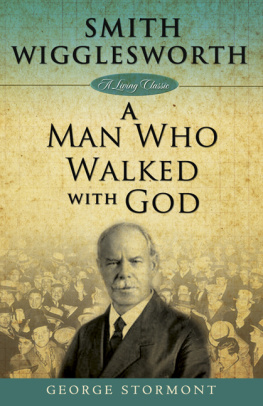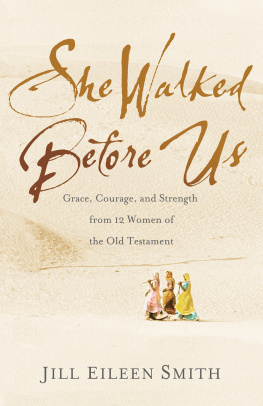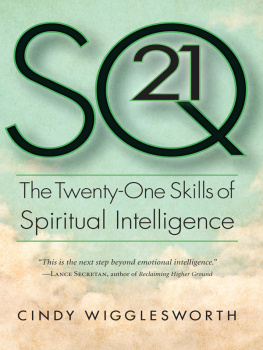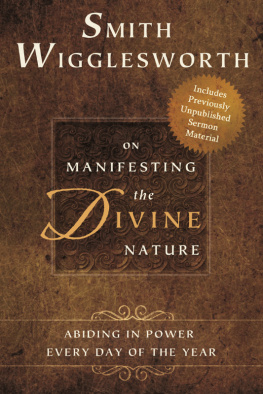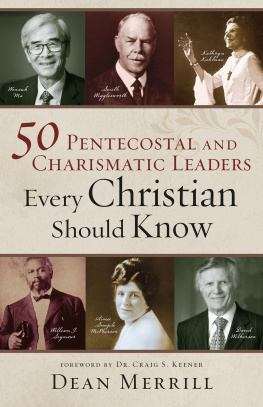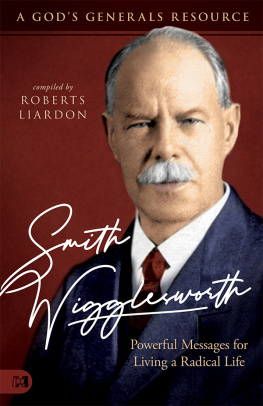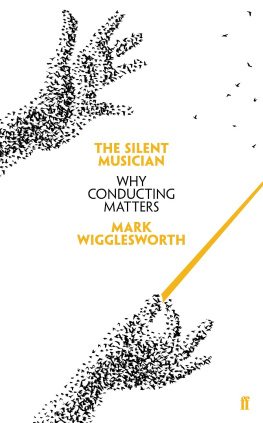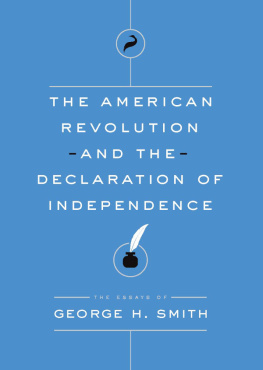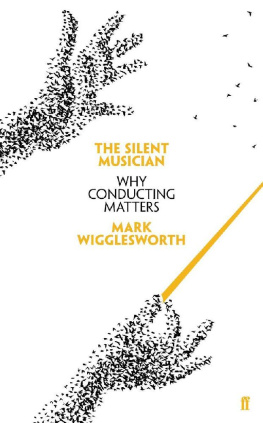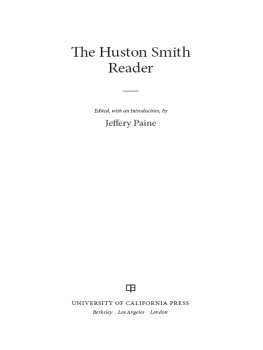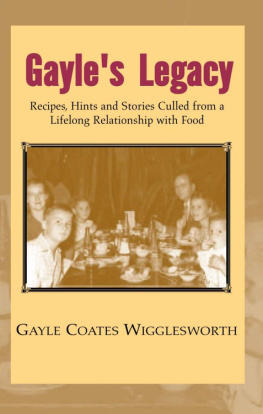To Ruth, my wife of fifty-one yearsGods love gift.
From the Turnip Fields to the World
Smith Wigglesworth was born in 1859 in Menston, a small Yorkshire village in England, to John and Martha Wigglesworth, one of three sons and a daughtera very poor family. Today, one hundred and thirty years after his birth, he is perhaps more well-known than he was in his lifetime. And, since his death forty-two years ago, his sermons and the books written about him have touched probably more people than he did during his life.
He began work at six years of age, pulling and cleaning turnips in the fields of a neighboring farmer. That was hard work, especially for a small boy, but even that was used by God. He learned discipline and developed an attitude toward work and toward doing well what was entrusted to himthat stood him in good stead later in the work which God gave him to do.
From the turnip fields of Yorkshire to the mission fields of the world, Smith Wigglesworth always was a dependable and hard worker, who knew the meaning of responsibility and accountability for the tasks set before him.
This book is not intended to be a biography, nor a chronological account. As one who knew him in the years of the fullness of his ministry, I have here set down my remembrances of him with the earnest hope that the ministry the Lord entrusted to him will challenge others to discover and fulfill their own ministries.
I have been more concerned with the spiritual significance of the characteristics he displayed than with the story of his life. He is one of the few people I have known whom I believe truly to be conformed to the image of Christ.
Wigglesworths parents were not saved, but his grandmother was. She took him to a Wesleyan Methodist Mission Hall when he was eight years old. Although he was so young, he said later that he had a hunger for God; and, in fact, he could not remember a time when he did not have such a hunger.
He knew even at eight that he was not saved. He listened intently to the preaching that evening and joined sincerely in the singing. They came then to a point in the service when those dear Wesleyan brothers and sisters began to dance around the old-fashioned coal stove as they sang a song about the Lamb of God and the precious blood of the cross.
Little boy Wigglesworth danced with them and later movingly described what happened.
I dont want them to see me anymoreonly Jesus!
Suddenly I saw that Jesus had died for me. Suddenly I realized that He had borne my sins. I lifted my heart to Him, and I knew that I was born again.
Then he could sing with as much abandon as any Wesleyan Methodist! There, in that little mission hall, he got a revelation of the simplicity of conversion. For the rest of his life, he used the words of his revelation, only believe, over and over in his witnessing and in his messages.
I Meet The Man Who Walked With God
Once when Smith Wigglesworth stayed in our home, he came down early one morning and told me, God spoke to me on your bed.
What did he say? I asked.
He said, Wigglesworth, I am going to burn you all up, until there is no more Wigglesworth, only Jesus.
Standing at the foot of our stairs, he raised his hands to heaven, and with tears running down his cheeks, he cried, O, God, come and do it! I dont want them to see me anymore only Jesus!
If I had to sum up the man Smith Wigglesworth as I knew him, that one statement would be it. He lived so that people would only see Jesus.
***
I first met Smith Wigglesworth in 1941 as he traveled from Bradford, England, to London en route to meetings in my church, Elim Pentecostal Church, Leigh-on-Sea, Essex. We were meeting in a hired building on the north shore of the River Thames estuary, about forty miles east of London, because our church had been destroyed by a German landmine.
Wigglesworth would have been distressed at the many books that have been written about him, but he would have redeemed the situation by saying with Paul, Be ye followers of me, even as I also am of Christ (1 Cor. 11:1).
I met Wigglesworth at a London railway terminus and escorted him across the city to another where we had an appointment with a man whose wife was dying of abdominal cancer. This man was seeking the Lords help through Wigglesworth. Our train to Leigh-on-Sea was due to leave in a few minutes, so the man accompanied us for part of the journey.
As soon as the train started, Wigglesworth said out loud, Jesus is up. Jesus is down. Jesus is up.
I was puzzled, and so was the man.
This man of Godwho was so much an original, so much an individual, that to some he seemed eccentriccontinued:
It says in John 3:13, No man hath ascended up to heaven, but he that came down from heaven, even the Son of man which is in heaven.
You see, my brother, Jesus is in heaven with all power. I reach out the hand of faith and touch Him. His power flows down through me. I stretch out the hand of compassion and faith and touch the sick and the needy. They are healed and begin to praise the Lord. The life of Jesus goes back to Him in worship. My brothers, that is the cycle of life in the Holy Spirit.
Then Wigglesworth turned to me saying, Come on, Brother Stormont, let us pour life into this fellow.
Without regard for the other people in the railway carriage with us, he stood upand I with himand prayed in a firm voice, Lord, pour Your life into this man.
Turning to the man, Wigglesworth said, Go home and lay your hands on your wifes stomach, and she will be healed.
Months later, I met the mans pastor, who told me the womans healing happened just as Wigglesworth had said it would.
Wigglesworth would have been distressed at the many books that have been written about him, but he would have redeemed the situation by saying with Paul, Be ye followers of me, even as I also am of Christ (1 Cor. 11:1).
He did not want people to copy him but many tried. He was totally himself, and he wanted other people to be themselves. Sometimes it was very amusing to see those who copied him. Some students at a San Francisco Bible institute noticed that when Wigglesworth was preaching, he would stroke his mustache. After he left, many of the students when preaching could be seen stroking the substance of things hoped for the evidence of things not seen!

